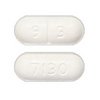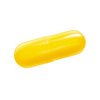 | Torsemide (Torasemidum) Active Ingredient: Torsemide Torsemide is used for treatment of edema (swelling) associated with heart, kidney, or liver failure, or with conditions in which there is excess body water. It is also used alone or with other medicines to treat high blood pressure. Other names for this medication: Demadex, Demator, Dilast, Dilutol, Ditec, Diuremid, Diuresix, Diuver, Dytor, Filantor, Isodiur, Luprac, Luretic, Sutril, Sutril neo, Tadegan, Toracard, Toradiur, Toragamma, Torahexal, Toramid, Torasemid, Torasemida, Torasémide, Torasemide sodium, Torasemidum, Torem, Torrem, Torsemida, Trifas, Tuosai, Unat Show all |
INDICATIONS
Torsemide is used for treatment of edema (swelling) associated with heart, kidney, or liver failure, or with conditions in which there is excess body water. It is also used alone or with other medicines to treat high blood pressure. Torsemide is a loop diuretic. It works by making the kidney eliminate larger amounts of electrolytes (especially sodium and potassium salts) and water than normal (diuretic effect).
INSTRUCTIONS
Use Torsemide as directed by your doctor.
- Take Torsemide by mouth with or without food.
- Torsemide may increase the amount of urine or cause you to urinate more often when you first start taking it. To keep this from disturbing your sleep, try to take your dose before 6 pm.
- If you also take cholestyramine, do not take it within 4 hours before or after taking Torsemide. Check with your doctor if you have questions.
- Avoid eating licorice or Korean ginseng while taking Torsemide.
- If you miss a dose of Torsemide, take it as soon as possible. If it is almost time for your next dose, skip the missed dose and go back to your regular dosing schedule. Do not take 2 doses at once.
Ask your health care provider any questions you may have about how to use Torsemide.
STORAGE
Store Torsemide at room temperature, between 59 and 86 degrees F (15 and 30 degrees C). Store away from heat, moisture, and light. Do not store in the bathroom. Keep Torsemide out of the reach of children and away from pets.
Do NOT use Torsemide if:
- you are allergic to any ingredient in Torsemide or to sulfonylureas (eg, glyburide)
- you are unable to urinate.
Contact your doctor or health care provider right away if any of these apply to you.
Some medical conditions may interact with Torsemide. Tell your doctor or pharmacist if you have any medical conditions, especially if any of the following apply to you:
- if you are pregnant, planning to become pregnant, or are breast-feeding
- if you are taking any prescription or nonprescription medicine, herbal preparation, or dietary supplement
- if you have allergies to medicines or other substances
- if you have fluid in your abdomen, hearing impairment, diabetes mellitus, low urine output, high blood uric acid levels, a blood disorder, kidney disease, lupus, had a heart attack, are dehydrated, or have liver disease or heart failure.
Some medicines may interact with Torsemide. Tell your health care provider if you are taking any other medicines, especially any of the following:
- Aminoglycosides (eg, gentamicin) or cisplatin because the risk of temporary or permanent hearing loss may be increased
- Nonsteroidal anti-inflammatory drugs (NSAIDs) (eg, ibuprofen, naproxen) or probenecid because they may decrease Torsemide's effectiveness
- Chloral hydrate, digitalis (eg, digoxin), lithium, or suramin because the risk of their side effects may be increased by Torsemide.
This may not be a complete list of all interactions that may occur. Ask your health care provider if Torsemide may interact with other medicines that you take. Check with your health care provider before you start, stop, or change the dose of any medicine.
Important safety information:
- Torsemide may cause dizziness. This effect may be worse if you take it with alcohol or certain medicines. Use Torsemide with caution. Do not drive or perform other possible unsafe tasks until you know how you react to it.
- Torsemide may cause dizziness, lightheadedness, or fainting; alcohol, hot weather, exercise, or fever may increase these effects. To prevent them, sit up or stand slowly, especially in the morning. Sit or lie down at the first sign of any of these effects.
- Patients who take medicine for high blood pressure often feel tired or rundown for a few weeks after starting treatment. Be sure to take your medicine even if you may not feel "normal." Tell your doctor if you develop any new symptoms.
- Tell you doctor or dentist that you take Torsemide before you receive any medical or dental care, emergency care, or surgery.
- Torsemide may cause you to become sunburned more easily. Avoid the sun, sunlamps, or tanning booths until you know how you react to Torsemide. Use a sunscreen or wear protective clothing if you must be outside for more than a short time.
- Your doctor may have also prescribed a potassium supplement for you. If so, follow the dosing carefully. Do not start taking additional potassium on your own or change your diet to include more potassium without first checking with your doctor.
- Torsemide is a strong "water pill" (diuretic). Using too much of this drug can lead to serious water and mineral loss. Therefore, it is important that you be monitored by your doctor. Promptly notify your doctor if you become very thirsty, have a dry mouth, become confused, or develop muscle cramps/weakness.
- Diabetic patients - Torsemide may affect your blood sugar. Check blood sugar levels closely. Ask your doctor before you change the dose of your diabetes medicine.
- Weight should be monitored while taking this medication.
- Additional monitoring of your dose or condition may be necessary if you are presently taking ketanserin.
- Lab tests, including kidney function, electrolyte levels, and blood pressure, may be performed while you use Torsemide. These tests may be used to monitor your condition or check for side effects. Be sure to keep all doctor and lab appointments.
- Torsemide is not recommended for use in children; safety and effectiveness have not been confirmed.
- Pregnancy and breast-feeding: If you plan on becoming pregnant, contact your doctor. You will need to discuss the benefits and risks of using Torsemide while you are pregnant. It is not known if Torsemide is found in breast milk. If you are or will be breast-feeding while you are using Torsemide, check with your doctor. Discuss any possible risks to your baby.
All medicines may cause side effects, but many people have no, or minor, side effects.
Check with your doctor if any of these most common side effects persist or become bothersome:
Constipation; dizziness or lightheadedness when sitting up or standing; excessive urination; headache; increased cough; nasal inflammation; nausea.
Seek medical attention right away if any of these severe side effects occur:
Severe allergic reactions (rash; hives; itching; difficulty breathing; tightness in the chest; swelling of the mouth, face, lips, or tongue); chest pain; diarrhea; dry mouth or unusual thirst; fever, chills, or persistent sore throat; hearing loss or ringing in the ears; loss of appetite; muscle pain or cramps; rapid or irregular heartbeat; rectal bleeding; red, swollen, blistered, or peeling skin; restlessness; unusual bruising or bleeding; unusual tiredness or weakness; vomiting.
This is not a complete list of all side effects that may occur. If you have questions about side effects, contact your health care provider.
 ZantacZantac is used for treating certain conditions that cause your body to make too much stomach acid (eg, Zollinger-Ellison syndrome).as low as $0.18
ZantacZantac is used for treating certain conditions that cause your body to make too much stomach acid (eg, Zollinger-Ellison syndrome).as low as $0.18 MotiliumMotilium is used for stopping feelings of sickness (nausea) and being sick (vomiting) in adults and children. It is also used for relieving stomach discomfort, fullness or bloating and regurgitation of stomach contents (reflux or heartburn) in adults.as low as $0.3
MotiliumMotilium is used for stopping feelings of sickness (nausea) and being sick (vomiting) in adults and children. It is also used for relieving stomach discomfort, fullness or bloating and regurgitation of stomach contents (reflux or heartburn) in adults.as low as $0.3 TorsemideTorsemide is used for treatment of edema (swelling) associated with heart, kidney, or liver failure, or with conditions in which there is excess body water. It is also used alone or with other medicines to treat high blood pressure.as low as $0.38
TorsemideTorsemide is used for treatment of edema (swelling) associated with heart, kidney, or liver failure, or with conditions in which there is excess body water. It is also used alone or with other medicines to treat high blood pressure.as low as $0.38 Brand AmoxilAmoxil is used to treat many different types of infections caused by bacteria, such as ear infections, bladder infections, pneumonia, gonorrhea, and E. coli or salmonella infection. Amoxil is also sometimes used together with another antibiotic called clarithromycin (Biaxin) to treat stomach ulcers caused by Helicobacter pylori infection. as low as $0.63
Brand AmoxilAmoxil is used to treat many different types of infections caused by bacteria, such as ear infections, bladder infections, pneumonia, gonorrhea, and E. coli or salmonella infection. Amoxil is also sometimes used together with another antibiotic called clarithromycin (Biaxin) to treat stomach ulcers caused by Helicobacter pylori infection. as low as $0.63 HytrinHytrin is used for treating high blood pressure and treating signs and symptoms of benign prostatic hyperplasia (BPH).as low as $0.83
HytrinHytrin is used for treating high blood pressure and treating signs and symptoms of benign prostatic hyperplasia (BPH).as low as $0.83 PrevacidPrevacid is used for preventing or treating certain types of ulcers. as low as $0.47
PrevacidPrevacid is used for preventing or treating certain types of ulcers. as low as $0.47